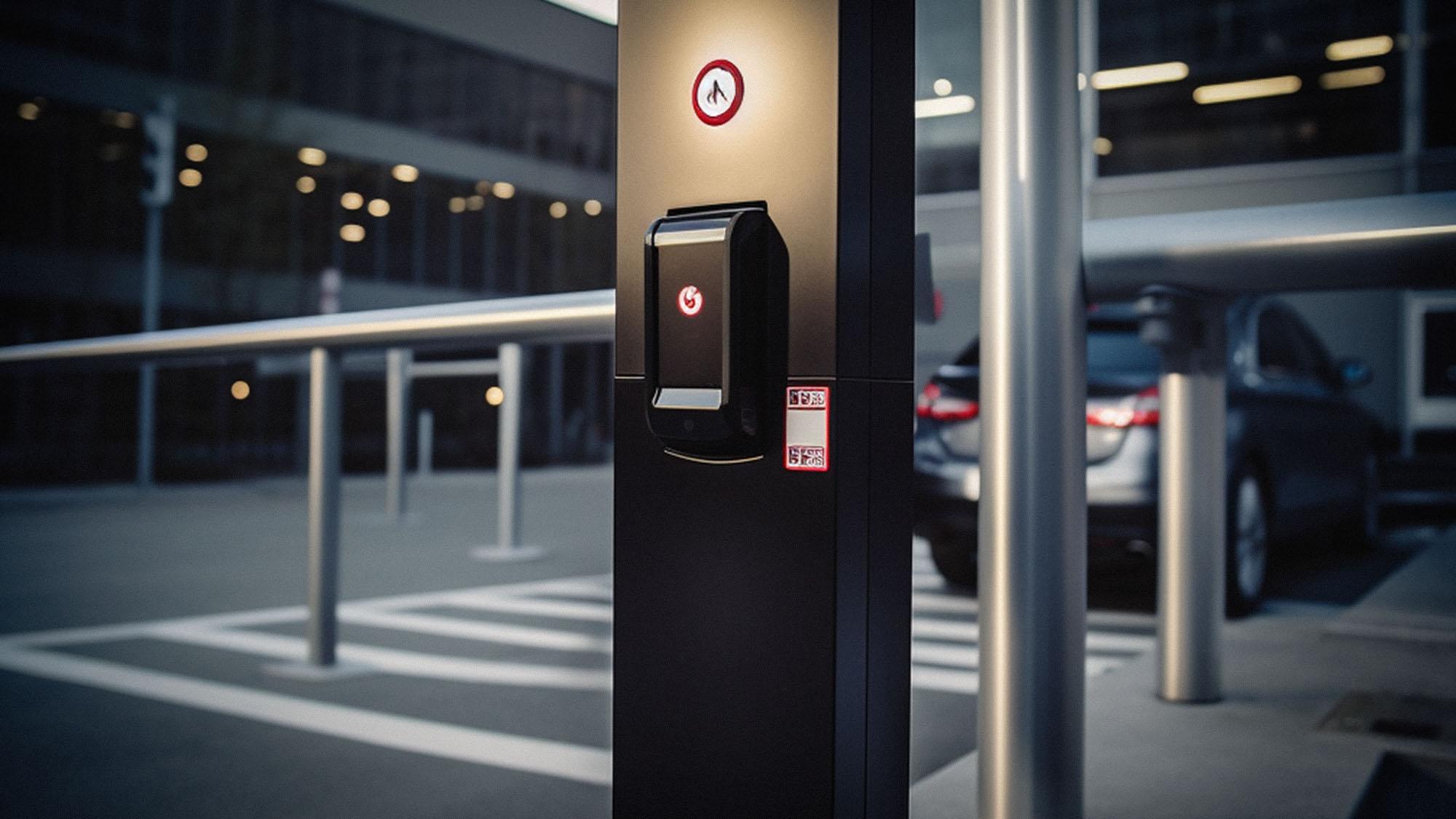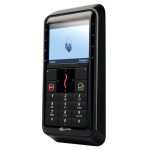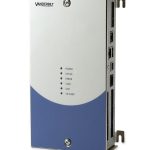Introduction to Vehicle Gate Access Control Systems
The Importance of Vehicle Access Control
In today’s security-conscious world, controlling vehicle access to facilities is crucial for maintaining safety and operational efficiency. Vehicle gate access control systems play an essential role in managing and monitoring vehicular entry and exit, ensuring that only authorized vehicles gain access. By understanding the importance of vehicle access control, organizations can better protect their assets, personnel, and premises.
Vehicle access control systems help prevent unauthorized entry, reducing the risk of theft, vandalism, or potential security breaches. These systems provide a monitored and controlled environment where security personnel can track vehicle movements and maintain detailed logs. This capability is particularly vital for sensitive facilities such as military bases, corporate headquarters, and gated communities.
In addition to enhancing security, vehicle gate access control systems contribute to operational efficiency. Automated access control reduces the need for manual checks, speeding up the entry and exit process. This efficiency minimizes traffic bottlenecks, ensuring smooth and orderly vehicle movement. For facilities handling high volumes of vehicles, this can significantly enhance productivity and reduce waiting times.
Vehicle gate access control systems also play a role in regulatory compliance. Industries such as logistics, warehousing, and transportation often face strict regulations regarding vehicle access and movement. Implementing robust access control systems ensures compliance with these regulations, mitigating legal and financial risks.
Understanding the importance of vehicle access control highlights the necessity of these systems for maintaining security and efficiency. By implementing effective access control measures, organizations can protect their assets, enhance operational efficiency, and comply with regulatory requirements.
Evolution and Advancements in Vehicle Access Control
The evolution of vehicle access control systems reflects advancements in technology and growing security needs. From manual barrier gates to sophisticated automated solutions, these systems have significantly transformed over the years. Understanding this evolution provides insight into the capabilities and benefits of modern vehicle access control systems.
Historically, vehicle access control relied on manual methods such as guards, toll booths, and mechanical barrier gates. These methods, while effective, were labor-intensive and prone to human error. The need for more efficient and reliable solutions led to the development of automated access control systems.
The introduction of electronic card readers marked a significant advancement in vehicle access control. By using RFID (Radio Frequency Identification) or magnetic stripe cards, these systems allowed for quicker and more secure vehicle entry and exit. Card readers reduced reliance on manual checks and provided a more streamlined access control process.
Further advancements in technology brought about the integration of license plate recognition (LPR) systems. LPR systems use cameras and software to automatically read and authenticate vehicle license plates. This technology enhances security by providing a non-intrusive and efficient means of verifying vehicle access. LPR systems are particularly beneficial for facilities with high traffic volumes, as they enable rapid and accurate vehicle identification.
Modern vehicle access control systems also feature mobile access solutions, allowing authorized vehicles to gain entry using smartphone-based credentials. This technology leverages Bluetooth or NFC (Near Field Communication) to provide secure and convenient vehicle access. Mobile access solutions offer the added advantage of reducing the need for physical cards, enhancing both security and user experience.
The evolution of vehicle access control systems highlights the shift towards automation and advanced technology. Modern solutions such as electronic card readers, license plate recognition, and mobile access provide enhanced security, efficiency, and convenience. Understanding this evolution underscores the capabilities and benefits of contemporary vehicle access control systems.
Key Features of Vehicle Gate Access Control Systems
Advanced Authentication Methods
Modern vehicle gate access control systems employ advanced authentication methods to ensure robust security and efficient access management. These methods range from traditional card readers to cutting-edge biometric and mobile solutions. Understanding these features highlights the comprehensive security provided by contemporary access control systems.
Card readers remain a staple in vehicle access control, offering a reliable method for authentication. These readers can handle various card types, including RFID and smart cards. Vehicles equipped with authorized cards can quickly pass through access points, streamlining the entry process. Advanced encryption ensures secure data transmission, minimizing the risk of unauthorized access.
License plate recognition (LPR) systems represent a significant advancement in vehicle access control technology. LPR systems use high-resolution cameras and sophisticated software to read and authenticate vehicle license plates. This method provides a non-intrusive and efficient means of verifying vehicle access, enhancing both security and convenience. LPR systems are particularly effective in high-traffic environments, such as corporate parking lots and gated communities.
Biometric authentication is another key feature of modern vehicle access control systems. By using unique physical characteristics, such as fingerprints or facial recognition, biometric systems provide a high level of security. Biometric authentication eliminates the risk of lost or stolen access cards, ensuring that only authorized individuals can gain vehicle entry. These systems can be integrated with other access control technologies for a multi-layered security approach.
Mobile access solutions leverage the ubiquity of smartphones to offer convenient and secure vehicle authentication. Authorized users can use their smartphones as digital credentials, enabling vehicle access via Bluetooth or NFC technology. This method enhances user convenience and provides additional security layers, such as multi-factor authentication and geo-fencing. Mobile access solutions are particularly beneficial in dynamic environments where traditional access methods may be impractical.
The advanced authentication methods in vehicle gate access control systems provide robust security tailored to various operational needs. Card readers, license plate recognition, biometric authentication, and mobile access ensure that only authorized vehicles gain entry, enhancing overall security and efficiency.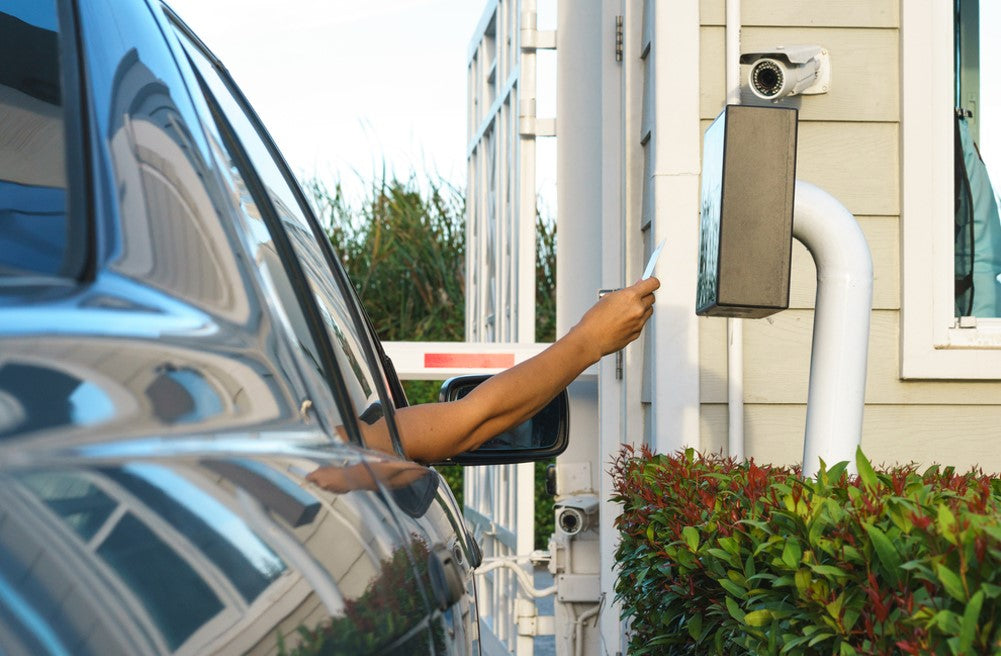
Integration and Management Software
A critical component of vehicle gate access control systems is the integration and management software that facilitates seamless security administration. This software allows for centralized control and monitoring of all vehicle access points, providing real-time data and analytics. Understanding the capabilities of integration and management software underscores its effectiveness in comprehensive security management.
The management software offers a user-friendly interface, enabling security administrators to easily configure and manage vehicle access permissions. This includes setting access levels for specific vehicles, defining time-based access rules, and assigning entry points to individual users or user groups. The software’s flexibility ensures that security protocols can be tailored to meet the unique needs of an organization.
Integration with other security systems is a standout feature of advanced management software. It can seamlessly connect with video surveillance systems, alarm systems, and other security infrastructure, providing a unified security solution. This integration ensures that all aspects of security are synchronized, enhancing both effectiveness and efficiency. For example, a surveillance camera integrated with an LPR system can capture and authenticate license plates, while also providing video footage for comprehensive monitoring.
The software’s robust reporting and analytics features are invaluable for security management. Administrators can generate detailed reports on vehicle access events, including entry and exit times, failed access attempts, and system alerts. These insights are crucial for identifying potential security threats, ensuring compliance with regulatory standards, and optimizing operational efficiency. Real-time monitoring capabilities allow for instant alerts on security breaches or unauthorized access, enabling quick and informed responses.
Scalability is another significant advantage of modern management software. Whether managing a single parking lot or multiple facilities across different locations, the software can scale to meet the organization’s needs. This scalability ensures that as the organization grows, its security infrastructure can grow with it, providing consistent and reliable protection.
The integration and management software in vehicle gate access control systems enhances the overall security and efficiency of facility management. With features like centralized control, real-time monitoring, robust reporting, and seamless integration, the software provides a comprehensive approach to vehicle access management.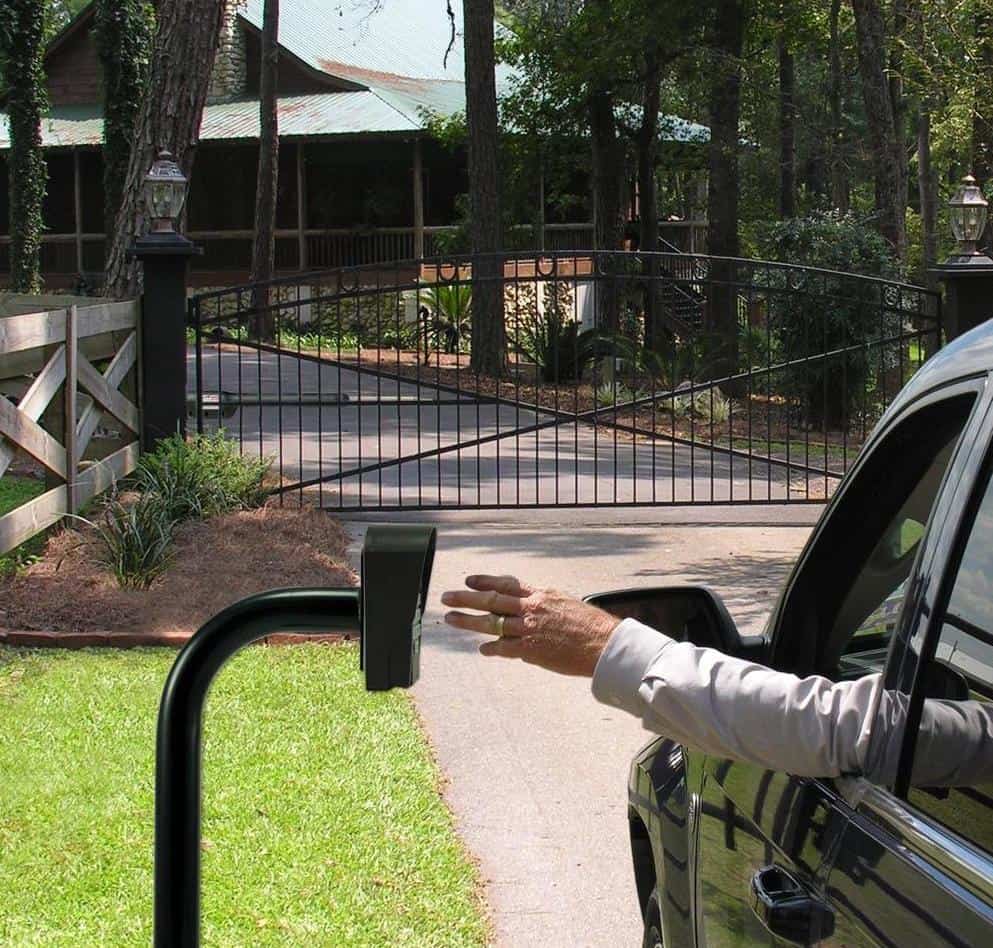
Applications and Benefits
Industry-Specific Applications
Vehicle gate access control systems are versatile and can be tailored to meet the unique needs of various industries. Understanding these industry-specific applications highlights the adaptability and comprehensive security solutions provided by modern access control systems.
In corporate environments, secure vehicle access is essential for protecting employees, assets, and sensitive information. Vehicle access control systems can manage access to parking lots, garages, and critical infrastructure. Features like license plate recognition and mobile access ensure that only authorized personnel can enter, enhancing overall security and operational efficiency.
Educational institutions, such as schools and universities, require secure environments to ensure the safety of students, staff, and property. Access control systems can manage entry to parking facilities, dormitories, and event spaces. The ability to customize access permissions for different user groups, such as faculty, students, and visitors, provides tailored security solutions that meet the institution’s unique needs.
Healthcare facilities face stringent security requirements to protect patient information and ensure a safe environment for patients and staff. Vehicle access control systems can secure hospital parking lots, emergency vehicle bays, and restricted areas. Features like biometric authentication and real-time monitoring ensure compliance with regulatory standards, such as HIPAA, while enhancing overall security.
In the logistics and transportation industry, managing vehicle access is crucial for operational efficiency and security. Access control systems can regulate entry to warehouses, distribution centers, and loading bays. Advanced authentication methods and integration with other security systems ensure that only authorized vehicles can access these critical areas, reducing the risk of theft and ensuring smooth operations.
Gated communities and residential complexes also benefit from vehicle gate access control systems. These systems enhance the safety and security of residents by regulating entry to the community. Features like card readers, license plate recognition, and mobile access provide convenient and secure vehicle access for residents and guests, ensuring a safe living environment.
Understanding the industry-specific applications of vehicle gate access control systems underscores their versatility and effectiveness. Whether in corporate, educational, healthcare, logistics, or residential settings, these systems provide tailored security solutions that enhance safety and operational efficiency.
Key Benefits of Vehicle Gate Access Control Systems
Vehicle gate access control systems offer numerous benefits, making them a preferred choice for various organizations. Understanding these key advantages highlights the value and effectiveness of modern access control solutions.
One of the primary benefits is enhanced security. With advanced authentication methods, real-time monitoring, and robust reporting capabilities, vehicle gate access control systems provide comprehensive security that protects people, assets, and information. Integration with other security infrastructure, such as video surveillance and alarm systems, further enhances the system’s effectiveness, creating a unified security solution.
Another significant advantage is operational efficiency. Automated access control reduces the need for manual checks, speeding up the vehicle entry and exit process. This efficiency minimizes traffic bottlenecks, ensuring smooth and orderly vehicle movement. For facilities handling high volumes of vehicles, this can significantly enhance productivity and reduce waiting times.
User convenience is also a notable benefit. Features like mobile access solutions, license plate recognition, and user-friendly management software make vehicle gate access control systems easy to use. This enhances user experience, ensuring that security protocols do not hinder productivity but rather support it. The ability to customize access permissions and rules ensures that the system can be tailored to meet specific needs.
Regulatory compliance is a critical concern for many industries, and vehicle gate access control systems help address this need. With detailed incident reporting, audit trails, and robust management tools, organizations can ensure compliance with regulatory standards. This not only enhances security but also mitigates legal and financial risks associated with non-compliance.
Cost-effectiveness is another advantage. While providing advanced security features, vehicle gate access control systems are designed to offer a good return on investment. The durability and reliability of the hardware, coupled with the comprehensive management software, ensure that organizations get long-term value from their security infrastructure.
Understanding the key benefits of vehicle gate access control systems underscores their value in providing robust, flexible, and user-friendly security solutions. Enhanced security, operational efficiency, user convenience, regulatory compliance, and cost-effectiveness make these systems a preferred choice for various organizations seeking comprehensive vehicle access control.
Conclusion: The Future of Vehicle Gate Access Control
Vehicle gate access control systems represent the pinnacle of modern security solutions, offering comprehensive features tailored to various industry needs. By understanding the significance, capabilities, and applications of these systems, organizations can make informed choices that enhance security and operational efficiency.
Advanced authentication methods, such as card readers, license plate recognition, biometric authentication, and mobile access, provide robust security while ensuring user convenience. Integration and management software facilitate seamless security administration, offering real-time monitoring, detailed reporting, and integration with other security systems.
Industry-specific applications demonstrate the versatility of vehicle gate access control systems, meeting the unique security needs of sectors such as corporate, educational, healthcare, logistics, and residential settings. The flexibility and scalability of these systems ensure that they can grow with the organization, providing consistent and reliable protection.
Key benefits of vehicle gate access control systems include enhanced security, operational efficiency, user convenience, regulatory compliance, and cost-effectiveness. These advantages make vehicle gate access control systems a preferred choice for organizations seeking robust and flexible security solutions.
In conclusion, vehicle gate access control systems offer a holistic approach to security, combining advanced technology, user-friendly features, and comprehensive management tools. By embracing these solutions, organizations can ensure a secure and efficient environment, paving the way for future growth and success.
